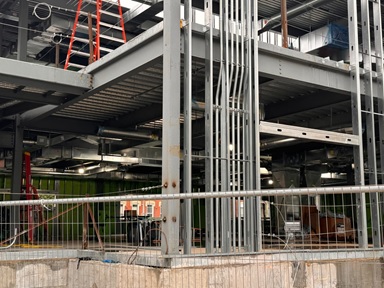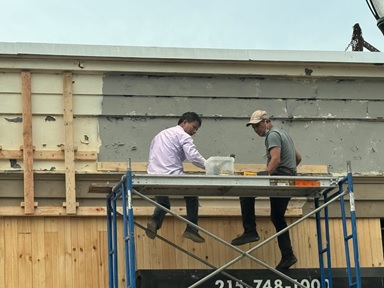Construction program enrollment is rising fast in Philadelphia for good reasons. As the city undergoes major infrastructure upgrades and new real estate developments, the bar for what makes a “job-ready” candidate is shifting. Gone are the days when learning on the job was enough. Today, Philly employers want employees who are certified, have soft skills, and the technical expertise that has been acquired with a construction program that aligns with the 2025 expectations. This article gives you a detailed account of the most sought-after skills, how the most reputed construction training programs groom these students, and the leading places to get the best construction courses near me.
Students in any construction program must demonstrate more to be successful in the workforce tomorrow than the bare minimum. Employers focus on versatility, problem-solving, and knowledge of new technology.
Employers demand applicants who are multitaskers. Other skills that are a must in the building field are drywall finishing, bricklaying, framing, and masonry. These skills are no longer learned only on the job but are now demanded on the first day.
Green codes are becoming the necessary art of green construction as Philadelphia advances such codes. In the current world, employers have shifted toward applicants who have studied green materials, solar preparation, and low-emission practices in their construction program.
Job sites are being digitised, including digital tape measures and construction tablets. Labourers must now know how to use laser measurement devices and read digital plans accurately.

A good work ethic is insufficient; supervisors and hiring managers appreciate teamwork, coordination, and clear communication. These skills are now being taught in many construction training programs as required modules.
The most reputable construction training programs do not only teach the role. They also prepare students and enable them to be job-ready, and all the certifications that students acquire are also recognised in the local labour market.
Employers are more likely to hire from schools they trust. State-accredited programs with real ties to unions and contractors offer higher placement rates and better credibility for new hires.
From 2000 to 2016, 85 % of construction apprentices in Pennsylvania were in union programs, and those graduates averaged 36 % higher starting wages and 60 % higher exit wages than non‑union peers.
Many schools now blend classroom learning with hands-on apprenticeship programs. These opportunities connect students directly with employers and create a strong bridge between training and full-time work.
Knowledge in a classroom can only take one so far. Real-life projects, site visits, and simulations allow students to demonstrate their abilities before employment.
 4. Quantifying Satisfaction Of The Construction Safety Training Standards
4. Quantifying Satisfaction Of The Construction Safety Training StandardsEmployers are not willing to take this risk with safety in mind. They want the students to complete and be certified in OSHA 10 or 30 and confidently know safety codes. The best construction training programs have built-in construction safety training on the first day of their curriculum.
Training centres are not the same. When looking for construction courses near me, you should know what distinguishes a decent program from a future-proof one.
At the beginning of 2025, the construction industry was responsible for 6% of the first unemployment claims in Philadelphia County.
Good programs clearly state whether they have high rates of job placements, instructors with experience, and curriculum upgrades. When a program fails to publicise findings or is out of line industry-wise, it is time to seek other Programs.
OSHA 30, NCCER Core, and Lead Safety Training are the certifications in Philly. The appropriate school will mention them in the brochure and earn them.

The Philadelphia best-rated training institutes, such as PTTI, are characterised by their performance. They are schools that incorporate the employer-sponsored curriculum, experienced mentors, and practical modules, which accelerate career success.
Most of the younger generation, who are currently or have gone to college, always represent the online side of the equation. The reasoning behind that is that the online system is new, which is one justification for why the younger generation would favour online. The in-person side of the equation, on the other hand, has the older generation
Though online education is convenient, most employers in Philly still prefer in-person graduates. It is hard to replicate the experience of visiting the site online, and employers understand this. Make this observation when selecting your construction program.
A forward-thinking construction program is no longer a question of option but a necessity. Construction in Philly has changing requirements; hence, workers must be ready at the table with new skills, up-to-date certifications, and real-world experience. From OSHA-compliant construction training programs to a hands-on construction skills training institute, your education choices now impact your hiring potential in real time. If you’re searching for construction courses near me, choose wisely; your career depends on it. Philadelphia’s skyline is changing, and your role in building it starts with the proper training.
Read More :